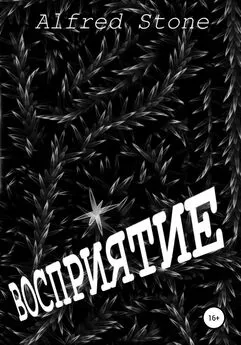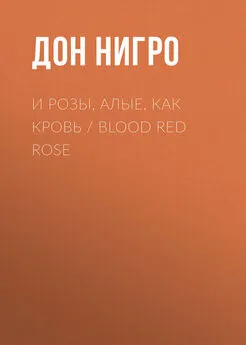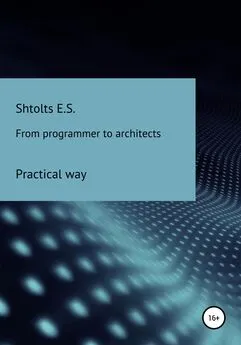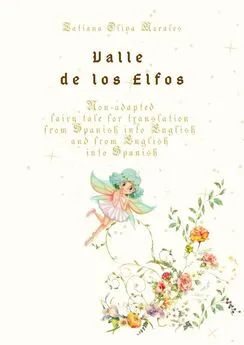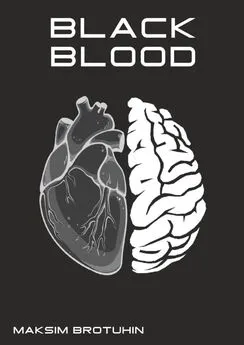Donna Leon - Blood from a stone
- Название:Blood from a stone
- Автор:
- Жанр:
- Издательство:неизвестно
- Год:2005
- ISBN:нет данных
- Рейтинг:
- Избранное:Добавить в избранное
-
Отзывы:
-
Ваша оценка:
Donna Leon - Blood from a stone краткое содержание
Blood from a stone - читать онлайн бесплатно полную версию (весь текст целиком)
Интервал:
Закладка:
‘That’s a terrible way to look at flowers,’ he insisted.
‘What would make it less terrible?’ she asked. ‘If the product were ugly? Plastic gondolas made in Hong Kong and flown here by air freight? Those dreadful masks?’
‘But they’re flowers, for heaven’s sake,’ he insisted, pointing at the vase as if demanding that the beauty of the flowers confirm his judgement or that they stand up straighter and defend themselves.
‘And we like flowers, and they’re beautiful, but the point I’m trying to make, Guido, is that they are no more necessary than are the plastic gondolas or the masks. We could just as easily live without them, but we choose to live with them, and because we do, we are forced to pay the ecological cost to get them here from wherever it is they come from.’ He thought she had stopped, then she added, ‘But we don’t mind, or we mind less, because they’re beautiful. So we persuade ourselves that it’s somehow different. Only it isn’t.’ Another moment’s pause and then she concluded, ‘Or so Chiara believes.’
Brunetti felt suddenly at sea, as though he had stepped into the shallow waters at the Alberoni and been swept off his feet by an invisible current. ‘She worries about the flowers, but she can still dismiss the death of a vu cumprà ?’ he asked, fully conscious of how illogical a question it was but unwilling to stop himself from asking it.
Paola smiled as if to suggest she had already asked herself the same question. ‘I think she’s still too young for us to expect much consistency in her ideas, or in her ideals,’ she said.
‘What does that mean?’
‘Exactly what I said: she’s still a child in many ways, so she’s discovering all the fine and noble causes for the first time, and she still sees each one as a discrete unit: she hasn’t seen the connections or contradictions among them; not yet.’
She looked across at him, but he said nothing, merely stood there looking unconvinced, so she went on. ‘I remember when I was her age, Guido, and the causes I thought were good ones. I’m embarrassed by some of them now and positively ashamed of one or two.’
‘For instance?’ he asked, making no attempt to disguise his scepticism.
‘For instance the Red Brigades,’ she answered instantly, suddenly far more serious than she had been. ‘I’m ashamed now to remember what I thought of them, that they were idealists who wanted to bring about a revolution that would lead to social and political justice.’ She closed her eyes at the memory of the person she had been then.
Not without a certain discomfort, Brunetti recalled his own enthusiasm for the slogans and the professed ideals that had been in fashion then. ‘And now?’ he finally asked.
She tilted her head and shrugged, then said, ‘Now I think they were just a bunch of spoiled young people who wanted to attract the world’s attention and didn’t much care who they hurt or killed in the attempt. All suffering from protagonismo , all infected with the same disease of needing to be the centre of the world’s attention. And we gave them all the attention they wanted, and some of us gave them our praise and approval.’ She picked up the vase of tulips and walked towards the living room. ‘So if there’s a certain inconsistency in Chiara’s enthusiasms or beliefs, and if she repeats slogans or ideas she’s heard from other people, I think we have to be patient with her and hope she’ll come to her senses.’
‘The way we did?’ he asked, following her down the hall.
‘I think so.’
‘Have you said anything to her?’ Brunetti asked.
‘About what she said?’
‘Yes.’
‘No,’ Paola answered, stopping beside the narrow table that held a majolica bowl and a small marble bust of Hermes. ‘That’s not necessary.’ She set the flowers down to the left of the statue, moved the vase a few centimetres forward, then stepped back to admire it.
‘What do you mean, it’s not necessary?’ he asked, making no attempt to disguise his disapproval.
Paola looked at him. ‘She knows what she said was wrong, and she’s been thinking about it since she said it. Or, rather, since I jumped on her for saying it. But she hasn’t finished thinking about it yet, and when she does, she’ll say something.’
Brunetti folded his arms and asked, ‘And you’re not only the earth mother? In your spare time you double as a mind-reader?’
Paola smiled and waved him out of her way. Heading back to the kitchen, she said over her shoulder, ‘Something like that.’
He followed, reluctant to acknowledge his conviction that she was right. He compromised by asking, ‘And what about the flowers?’ nodding with his chin at the irises, which she had begun to slip into the tall blue vase she always used for them.
‘When I’m finished putting them into the vase, I’ll put them in my study, and then anyone who sees them will enjoy looking at them.’
‘And if she says something?’ he asked.
‘I’ll tell her I agree entirely with her principles, but that you brought them to me, so she will have to address her comments or criticisms to you.’
He laughed, opened the door to the cabinet under the sink, and stuffed the wrappers into the garbage. ‘You really are a snake, Paola,’ he said, not without admiration.
‘Yes, I know,’ she agreed. ‘It’s a form of adaptive behaviour forced upon me by the nature of my work.’
‘Me too,’ he said, then asked, ‘Shall we go and have a coffee?’
She slid the vase of irises to one side of the counter and stepped back to admire them. ‘Yes, if we can go to Tonolo and have un cigno . And while we’re over there, we could go to San Barnaba and see if they have any of that good bread.’
It would take, he calculated, more than an hour. First a cream-filled swan and a coffee at Tonolo, then the walk to Campo San Barnaba and the store that sold the good cheese and the bread from Puglia. He had fled his office in search of peace and quiet, seeking some evidence that sanity still existed in a world of violence and crime, and his wife suggested they spend an hour eating pastry and buying a loaf of bread. He leaped at the chance.
As they walked, occasionally stopping to say hello to people they met or to look into shop windows, he told her about Patta’s warning and what he thought it might mean. She listened, saying nothing, until they had had their cream-filled swans and coffee and were on the way to Campo San Barnaba.
‘You think he’s afraid for his job or for his life?’ she asked, then added, ‘or his family?’
Brunetti stopped at the first of the two produce-filled boats moored to the riva , then moved on to the second. Ignoring Patta for the moment, they discussed dinner and bought a dozen artichokes and a kilo of Fuji apples. As they moved away, Brunetti returned to Paola’s question and said, ‘I’m not sure, only that he’s frightened.’
‘Could be any one of them, then,’ she said, turning into the store. Ten minutes later, they emerged with an entire loaf of the Pugliese bread, a wedge of pecorino, and a jar of the pesto sauce the owner swore was the best in the city.
‘What do you think?’ she asked in a voice so level he had no idea if she was talking about the pesto or the reason for Patta’s fear. He waited, knowing his silence would prod her to explain. ‘You know him better than I do,’ she finally said, ‘so I thought you’d be able to sense which it is, his job or his safety.’
Brunetti thought about this for some time and finally admitted, ‘No, nothing more than that he’s very frightened.’
‘If you keep going, you’ll find out,’ she volunteered.
‘Investigating, you mean?’
She stopped and looked at him, surprised. ‘I assumed you’d continue to investigate, no matter what he said. What I meant was if you continue to let him know that you’re doing it.’
‘I’ll try to see that he doesn’t find out,’ Brunetti said.
‘To spare his feelings?’
Brunetti laughed. ‘No, to spare my job.’
‘He can’t fire you, can he?’ she asked, and he could already see her marshalling the forces of her family and their network of connections.
Brunetti considered this, then answered, ‘No, I don’t think he could do that on his own. But he could suggest that I be transferred. That’s the usual way of getting rid of people.’
‘What sort of people?’ she asked.
Walking at her side, he occasionally fell back a step to allow others to pass them on the narrow calli . ‘Inconvenient people,’ he answered finally.
‘Which means?’
‘People who ask questions and who try to prevent the entire system from becoming hopelessly corrupt,’ he said, surprising himself with his own seriousness.
She reached and took his arm and tucked it under her own. He had no idea if the gesture was a request for help or an offer to provide it. It didn’t much matter to him which it was.
16
Brunetti woke the next morning to bright sunlight. For the last week, the fog had been trying to transform itself into rain but had managed to do nothing more than drape a slick film on the pavements. During the night the rain had finally come — Brunetti had a vague memory of hearing it slash against the windows while he slept — but some time before dawn it had given up and left the day to the sun.
He lay in bed, made happy by the strip of light that spread across the bottom of the covers. He turned on to his back and stretched to his full length and, yes, his feet found that, at the very bottom of the bed, where the sun had been shining for some time, it was warm.
A half-hour later he woke again, this time suddenly, remembering that Christmas was only four days away, and he had, once again, done nothing about getting gifts for anyone. His first impulse was to blame Paola for not having reminded him, but the instant he caught himself thinking that, he cringed away, embarrassed, from the idea. A few minutes later, she came into the room, carrying a large cup of caffè latte. She wore a green woollen dress he did not remember having seen before. She set the cup and saucer on the table beside him, sat on the edge of the bed, and said, ‘I wanted to be sure you were up before I left.’
‘Where are you going?’
‘To meet my mother and take her shopping.’
He picked up the cup and pulled it close to his mouth before asking, ‘Christmas shopping?’
‘Yes. I don’t know what to get my father.’
He took three small sips, drawing in life with each one. ‘I don’t know what to get anyone.’
‘You never do,’ she said mildly and with great affection. ‘If you meet me at four at San Bortolo, we can go and get some things together.’
‘You’re not home for lunch?’ he asked, trying not to sound aggrieved.
‘I told you last night, Guido. My mother and I are invited to Aunt Federica’s for lunch today.’
That explained the dress, then. He drank more coffee and stifled the impulse to ask her how she could stand the thought of two hours in the company of her aunt. But if she was willing to go shopping with him, something she loathed even more than he did, then he would forgo comment on her family.
‘We go every year; you know that,’ she said. She saw the face he made when she spoke of certain members of her family, and it prompted her to say, ‘Remember that she’s the one who brought a successful case against the diocese of Messina for fraud.’
He covered his eyes with his left hand and asked, ‘Must you always brag about your family?’ When Paola made no reply, he looked out at her from between his fingers. She did not smile.
Читать дальшеИнтервал:
Закладка:
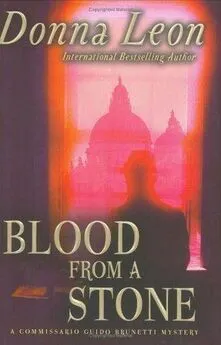
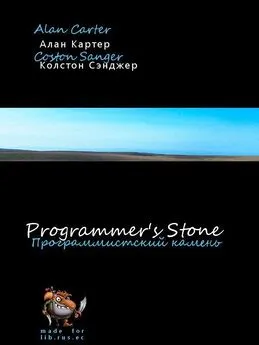
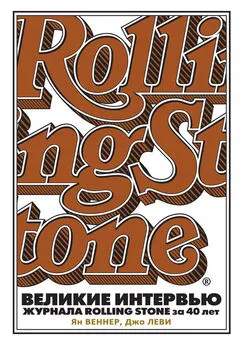
![О Генри - С высоты козел [From the Cabby's Seat]](/books/1083418/o-genri-s-vysoty-kozel-from-the-cabby-s-seat.webp)
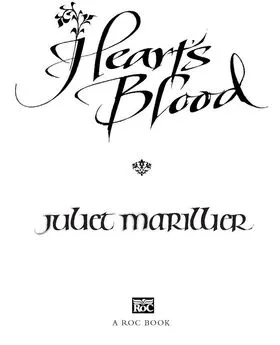
![Инна Владимирова - Blood diamond [litres самиздат]](/books/1149324/inna-vladimirova-blood-diamond-litres-samizdat.webp)
